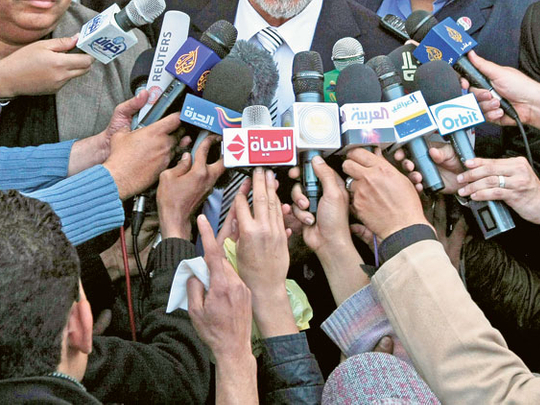
Dubai: In terms of internet usage, 80 per cent of the region's youth uses the internet on a daily basis, a jump from 56 per cent in 2009.
About 91 per cent of Qatari youth access the internet daily followed by Lebanon, Oman, Jordan and Bahrain. Egyptian youth are the least frequent internet users with 68 per cent saying they access the internet every day. Primary activities on the net include music and social networking.
Youth regard television as the most trusted source of news. Qatari youth (85 per cent) have the highest level of trust in television news while Bahraini youth (25 per cent) have the lowest levels.
Right now
"This generation looks to TV and internet and there's also the visual and real time component where you turn on the TV or computer and get information on what's happening right now," said Paul Dyer, an expert on political economy in the Middle East at the Dubai School of Government. A newspaper gives you yesterday's news he said. Dyer said most newspapers that people have access to in countries where unrests broke out have a political agenda because they are supported by political organisations or owned by the state.
Al Jazeera, which is owned by Qatar, is an interesting exception as they scored a big victory with protesters. "Despite being owned by the Qataris, they are not on a leash and are not told what to report on," said Dyer. Al Jazeera was shut down and blocked in Egypt, which was in direct contrast to the state-owned Egyptian television channels.
Apart from the real time advantages of television, another advantage to the medium is that views can go through various channels and compare what's going on, how news is covered and who has got a political agenda.
Dr Rima Sabban, Sociologist at Zayed University, also mentions that Al Jazeera became the trusted source of news for the Arab region and the world.
Also, "the young generation rarely reads the paper; they don't have the habit of buying newspapers themselves so in that sense you can see them easily trusting TV."
Dr Mark Rush, political science professor and Dean of College of Arts and Sciences at the American University of Sharjah, finds the reliance on television, instead of the internet, as a trusted news source strange as protests were driven by social media.












